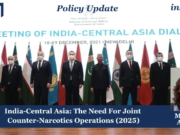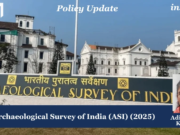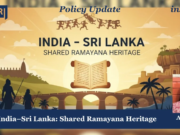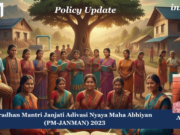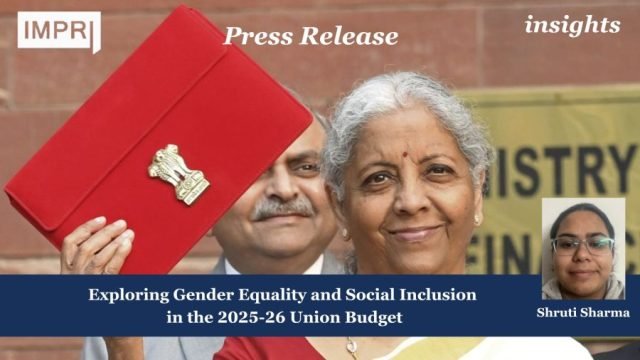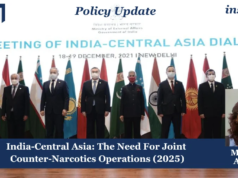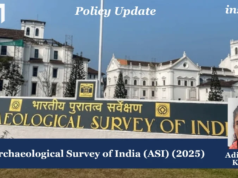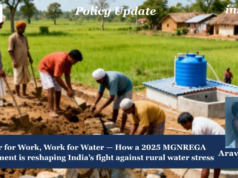Press Release
Shruti Sharma
New Delhi, February 4, 2025 – The IMPRI Gender Impact Studies Centre (GISC) at the Impact and Policy Research Institute (IMPRI), New Delhi, conducted an interactive panel discussion on “Gender, Social Inclusion, and Union Budget 2025-26” as part of IMPRI’s 6th Annual Series of Thematic Deliberations and Analysis of the Interim Union Budget 2025-26. The session, held at 3:00 p.m. IST, brought together distinguished experts to analyse the budget’s impact on gender and social equity.
Key Highlights and Concerns Raised
Chair’s Opening Remarks
The discussion was chaired and moderated by Prof. Vibhuti Patel, Visiting Distinguished Professor at IMPRI and Former Professor at TISS. She highlighted key aspects of the Union Budget 2025-26, pointing out the insufficient allocation to the Ministry of Women and Child Development (0.53% of the total budget), particularly concerning in light of the declining investments in critical public sectors such as education, healthcare, transport, information technology, and telecommunications. She emphasized that this shift increases dependency on private enterprises, raising concerns for marginalized and vulnerable populations.
Prof. Patel also expressed alarm over the 50% reduction in allocations under Mission Sambal and Mission Samarthya, programs aimed at addressing violence against women and supporting rehabilitation. Additionally, she criticized the continued neglect of hunger and malnutrition, stressing the urgent need for a more inclusive and welfare-oriented fiscal approach.
Economic Analysis and Gendered Perspectives
Prof. Paramita Saha, Professor of Economics at Tripura University, analysed the budget through the lens of garib (poor), youth, annadata (farmers), and nari (women). She explored the challenges in budget negotiations, highlighting the rising middle-class household sentiment and spending power while questioning the ambiguous definition of “middle class.”
She also addressed broader economic uncertainties, pointing to global trade disruptions, geopolitical conflicts, and the impact of the Suez Canal crisis on rising prices. Prof. Saha expressed concern over the heavier reliance on income tax revenues compared to corporate taxes, despite government efforts to boost corporate activity.
On women’s welfare, she emphasized the importance of health and education allocations. She welcomed budgetary provisions for medical tourism, day-care centres for cancer patients, and medical education but criticized the lack of allocation for a senior citizens’ health insurance scheme. She further pointed out that merely reducing customs duties on essential medicines is insufficient, given the exorbitant prices of 36 life-saving drugs.
Entrepreneurship, Informal Sector, and Social Security
Prof. N. Manimekalai, Director of the Centre for Women’s Development Studies, highlighted the challenges faced by female entrepreneurs and the insufficient attention given to Scheduled Caste (SC) and Scheduled Tribe (ST) women. She underscored the need for security measures and safety nets for women in the informal sector, emphasizing skill development and meaningful employment opportunities.
She advocated for better transport facilities, temporary shelters, and hostels to support working women in the informal sector and urged the government to bring domestic workers and Anganwadi workers under a structured social security framework. Additionally, she called for recognition of self-employed women in digital, social media, and food services industries as entrepreneurs, enabling them to benefit from government schemes.
Prof. Manimekalai stressed the importance of effective implementation, noting the persistent gaps in executing existing policies, which undermine their intended impact.
Inclusivity in Budgeting
Ms. Supriya Jain, representing grassroots leadership and knowledge-building at CORO India, voiced concerns about the complexity of the budget, making it difficult for grassroots activists to comprehend and engage with it effectively. She advocated for inclusive policies that empower not only middle-class women but also poor urban and trans women.
She stressed the need for gender-sensitive public transportation, pointing out the continued lack of investment in safe and reliable transit systems. Workplace safety and urban employment were key areas of concern, particularly for ASHA workers, who play a crucial role in the healthcare sector but continue to face poor working conditions and low wages.
Ms. Jain emphasized that women are not a homogeneous group and that discussions on gender budgeting should include caste, gender, and racial perspectives. She also raised concerns about the SMILE scheme, which supports beggars and the transgender community, arguing that these groups need distinct and tailored interventions due to their unique socio-economic challenges.
Additionally, she called for gender-segregated data collection in Water, Sanitation, and Hygiene (WASH) initiatives to track progress and ensure systemic barriers are effectively addressed.
Optimism and Opportunities
Dr. Aditi Sawant, Principal at SNDT College of Arts and SCB College of Commerce and Science, provided an optimistic take on employment, education, health, and agriculture. She acknowledged the rapid growth of the gig economy and appreciated government initiatives like E-Shram registration and the PM Jan Arogya Yojana.
In agriculture, she discussed the potential of agro-tourism and the benefits of the Kisan Credit Card for women if implemented effectively. She also supported the MUDRA scheme, which empowers women entrepreneurs to open homestays, contribute to women’s tourism, and generate employment.
On education, she emphasized the need for AI-equipped computer labs to ensure quality education and reduce gender biases. She advocated for the Sarva Shiksha Abhiyan to further encourage young girls and women to integrate into mainstream society.
Dr. Sawant also backed the establishment of day-care cancer centres in district hospitals and urged exemptions on 36 essential life-saving drugs to enhance healthcare accessibility for women.
Agrarian Sector, Reproductive Health, and Senior Citizens
Dr. G. Uma, Associate Professor at the School of Gender and Development Studies, IGNOU, focused on the agriculture sector, reproductive health, and senior citizens. She raised the crucial question: Is the agricultural sector being viewed from a gender perspective?
She highlighted that female labor force participation has increased by only 5.8% in the last 30 years, with no significant wage growth in the past five years. Despite feminization of agriculture and reverse migration, budget allocations for women in agriculture remain inadequate. While the 2006-07 budget increased agricultural funding, only 20.8% of women participated in the sector by 2015-16, with subsequent declines in funding.
She also criticized the patriarchal structures of institutions and policy-making processes, which often fail to address the specific needs of women. On health, she pointed out the neglect of primary healthcare, lack of adolescent health and nutrition support, and insufficient investment in elderly care.
Conclusion
The panel discussion underscored the urgent need for a more inclusive, gender-sensitive, and equitable Union Budget 2025-26. Experts collectively called for increased budget allocations in public health, education, women’s safety, and entrepreneurship, along with stronger implementation mechanisms.
The discussion highlighted key gaps in current policies, emphasizing that marginalized groups, including SC/ST women, trans women, and informal sector workers, must be meaningfully integrated into budgetary considerations. The call for a gender-responsive budget remains critical to achieving sustainable economic and social progress for all.
IMPRI’s 6th Annual Series of Thematic Deliberations and Analysis of Union Budget 2025-26
IMPRI’s 6th Annual Series of Thematic Deliberations and Analysis of Union Budget 2025-26
Watch the event at IMPRI #Web Policy Talk
Gender, Social Inclusion and Union Budget 2025-26
Acknowledgement- This article was written by Shruti Sharma, a research intern at the Impact and Policy Research Institute (IMPRI).


